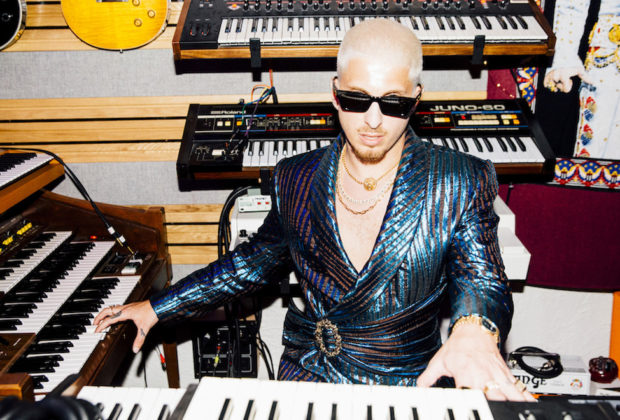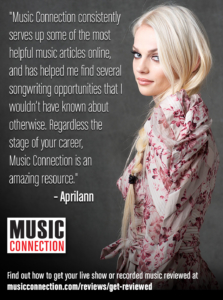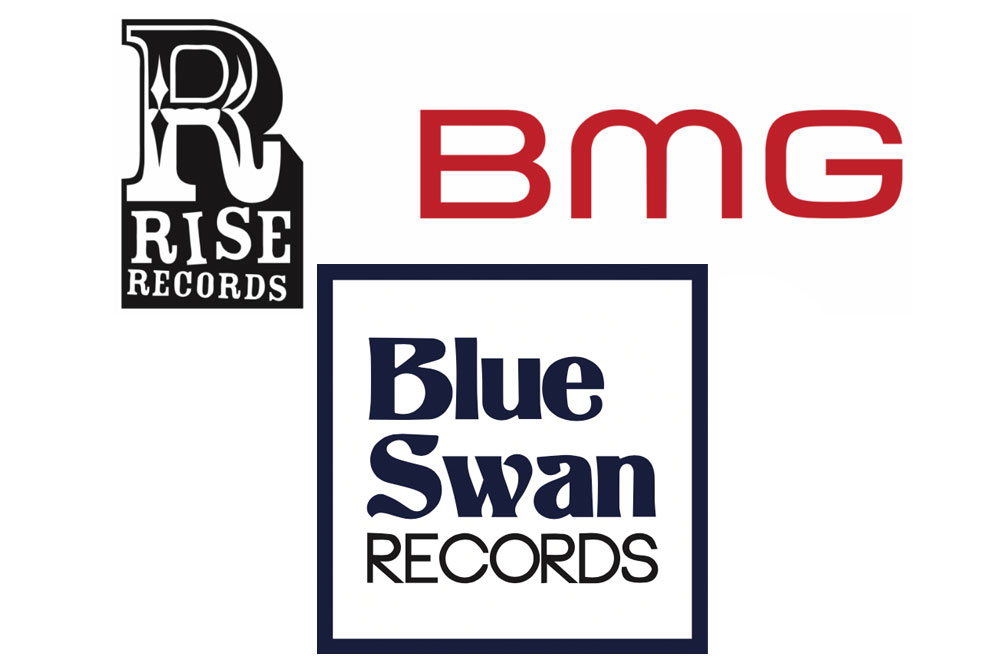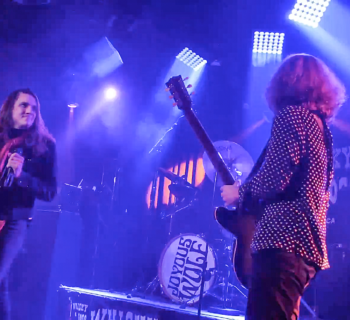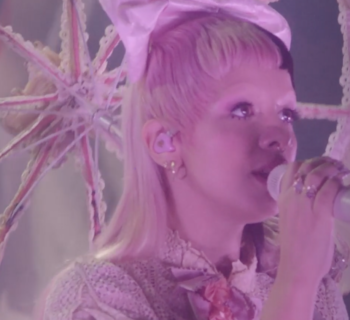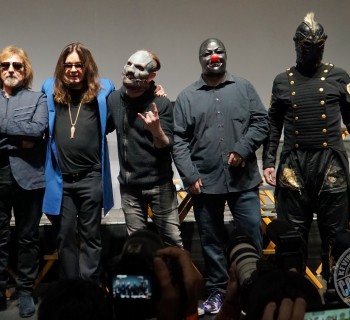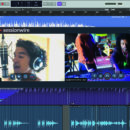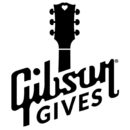Andrew Watt, commonly referred to simply as WATT, is in the news right now thanks to the fact that he has executive produced the new album from heavy metal titan Ozzy Osbourne, Ordinary Man. It’s an interesting but perhaps unsurprising move for the producer, songwriter and musician who is still only 30 years old. Throughout his career to this point, Watt has made a conscious effort to work with as many different artists from different corners of the musical universe as possible.
His songwriting and production credits include Cardi B, Justin Bieber, Lana Del Rey, Post Malone, Camila Cabello and Shawn Mendes. He’s earned Grammy nominations, and the smart money says that he’ll get a win before too long. It all led Monte Lipman, chief executive of Universal Republic Records, to state that Watt has, “this uncanny knack for melody, chord progressions and it’s all effortless. What we’re guilty of is trying to pigeonhole him as a rock guy, because he’s not. He’s a music guy.”
He’s based in Los Angeles now, with a home studio in Beverly Hills, but Watt grew up on Long Island with a passing interest in becoming a professional wrestler, until his brother introduced him to the undeniable joys of Seattle grunge icons Nirvana. Like many teens, Watt started jamming and playing in bands with his buddies, but became increasingly frustrated when they proved themselves to be not as determined as he. When he wanted to drive on and perfect the sound, they wanted to stop to play video games or soccer. Not to be held back, Watt learned how to play guitar, bass and drums, and to use computer tools, so he could do everything himself.
A break came when he started interning for hip-hop giants the Roots just as they became the house band for Late Night With Jimmy Fallon. Ever the opportunist, Watt would turn up to every practice with his guitar and got his reward when Captain Kirk Douglas couldn’t make a show and needed to be replaced for the night.
“Playing with rappers and MCs full-on, you know, it’s not like they’re singing and stopping,” Watt said in a statement. “They’re attacking the beat. There’s not a lot of room to play. You’ve got to play in the holes or be more like a drummer, play percussively, play parts that kind of just fit in.”
He was forced to step this up when he toured Greece with rapper Jared Evans. Upon his return, Watt told his father that he wasn’t returning to school––and was promptly cut off. From that point on, his music was his livelihood.
“If my dad hadn’t cut me off in that way and we hadn’t had that strain in our relationship, I wouldn’t have gone into overdrive,” he said in a statement. “I wouldn’t have started to be, like: Okay, well, if I don’t do this then I’m not going to eat. And there was no plan B.”
Watt played with Cody Simpson and that led to work with Justin Bieber. Then in 2014, he formed the band California Breed with Glenn Hughes. As we sat down to talk, Watt’s career––both as producer Andrew Watt and as performing artist WATT, appears to be on an unstoppable upwards trajectory.
Music Connection: Let’s start with a bit of background––how did you first get involved with music, and when did you start producing?
Andrew Watt: I was living in New York City, and kind of playing gigs everywhere. Every bar, every club, everywhere I could put myself playing music. I wound up getting a gig playing guitar for an artist, not my own music, so I became this hired gun. One gig led to another, one tour led to another, and I found myself on tour with Justin Bieber. I became very good friends with him. I was a hired gun, writing songs for the artists I was working with. He ended up singing one of my songs, and it was a huge hit. That’s when I realized that maybe writing songs for other people was my true calling.
MC: Wow, that’s quite a baptism of fire, going straight in with Bieber…
Watt: It wasn’t straight in, I kind of gave you the abridged version. I was going artist to artist to artist, but that was the first one that worked, you know?
MC: How do you set about writing for other people, when you’re used to the personal approach of writing your own material?
Watt: From the day I played guitar, from 10 years old, I was writing. I was making my own things up and just always writing and writing. As you get older and start being in bands, you start learning how to collaborate with other people. I think music is a true art form that’s best with collaboration. So as I got out to L.A., I started writing with other people. Co-writing, and doing sessions.
Ali Tamposi is an incredible songwriter and one of my closest friends. We started writing together about eight or nine years ago. When me and her met, we completed each other and made each other’s ideas and songs better. That’s when the songs got good enough to be sung by artists like Justin Bieber.
MC: How and when did you make the crossover from songwriting to producing?
Watt: I think I was always producing, but I wasn’t credited as so. Yeah, I guess connecting all the dots is really more producing. The title of producer has changed a lot in current music. Now, someone who makes beats on their computer is a producer. Whereas producers of the past, be it a Mutt Lange or even further back, were doing a lot more than that.
Recording the vocal. That, recording the vocal, to me is being the producer. That’s the most important part of the song. The voice is the thing that the world connects to because everyone loves to sing. It’s the only bit of melody in the song that has words attached to it. So I think that recording the vocal, working with the vocalist to get a final vocal, I think that is the most important part of producing, and then everything else wraps around it.
But I love to produce. I love to see a song from the initial chords and melodies and lyrics, to get close with the artist and all the elements are added on top. It’s like a drug.
MC: Those huge boards in studios can be initially overwhelming. Were you self-taught?
Watt: Yeah. That’s what it is. It’s all kind of observing. I had a bass teacher, I took bass lessons for a little less than a year when I was younger. That was my formal music training, and then from there I took up the guitar and everything. The studio was just watching people work. Working with other people. Grabbing things from everyone, everywhere you go. Trying your own things and having them fail. Then having them really work.
You keep grabbing things along the way from all the different people that you work with. Things that you liked. Producing is taste level. It’s your taste that you’re deciding––Is this good enough? Is this cool enough? Does this sound good enough? Is this part great enough? It’s all taste. Then you release it to the world, and if they like it, they like your taste. But grabbing things from all these different people and putting them into your own music, it’s really making your own style.
MC: As an artist, a creative, do you prefer to produce music for other people or create your own music?
Watt: I say this every day, I feel like one of the luckiest people in the world because I get to do so many different things within music. So I’m never bored.
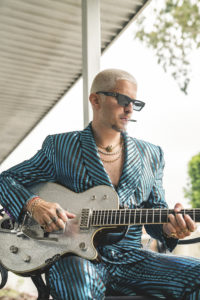 Every day I wake up and have a collection of guitars that’s almost amassed 300. “Which guitar do I want to play today?” “Who am I working with today,” and it’s a different person and a different kind of music. It’s so rewarding. So I can’t even pick any one thing that I love. I just love it all, and every day is a different challenge and a different reward.
Every day I wake up and have a collection of guitars that’s almost amassed 300. “Which guitar do I want to play today?” “Who am I working with today,” and it’s a different person and a different kind of music. It’s so rewarding. So I can’t even pick any one thing that I love. I just love it all, and every day is a different challenge and a different reward.
MC: In 2014 you released an album with California Breed, the band you were in with Glenn Hughes (Deep Purple/Black Sabbath). How did that band come to be?
Watt: I was at a friend of mine’s photography show, in L.A. when I was first starting to come here a lot to do songwriting sessions. I met Glenn at the photography show, and I knew Trapeze. I had my dad’s Trapeze album on vinyl, that I listen to. I knew who Glenn was, and he couldn’t believe that I knew who he was. I was like 22 or 23 at the time. We just started talking, and I guess my line back then was “We should write a song some time.” I would say that to anyone, whoever I met that wrote songs, because I just wanted to write. All I wanted to do was write, write, write, write.
We exchanged information, and he looked into me a little bit and was like, “Yes, we should write a song.” So we wrote together, and it was the first time I actually wrote with someone who was much, much older than I was. But music is the great connector. It doesn’t have any restrictions. We wrote, and I think he was wanting to start a new band at the time so he kinda asked me if I’d ever want to be in a band with him. I said yes. That was that. It was really cool, and really great.
I was on pop tours up until that moment, [but] all I ever wanted to do was be in a rock band. Suddenly I found myself in a band with the bass player from Deep Purple and Jason Bonham––Led Zeppelin heritage. We were going on tour with Slash and doing all this stuff that was in my rock & roll dreams and what I had really wanted to do as a kid.
It was an amazing experience and I met so many people through that band who are in my life today, including Chad Smith from the Chili Peppers, so everything serves a purpose in your life, all the different things.
That was a really enriching time in my life.
MC: Is that band done, or just on hiatus?
Watt: It’s done. Not everything is meant to last forever.
MC: When you’re working with different types of artists from across the musical spectrum, does your approach have to be fluid or are there consistencies?
Watt: Definitely. I always approach every writing session with a guitar in my hands, even if the final recording doesn’t even include a guitar. I love how I can come in there and sit with an artist and break it down on the couch. It all starts there. If a song is showing promise from a bare place, then production can go any kind of way.
MC: Regarding your own material, do you prefer to produce it or would you rather have other voices in there to bounce ideas off of?
Watt: I always love to collaborate, no matter what I’m making. I have songs where I’m the only producer, I have songs where there’s three other producers on the songs. I have songs that are 100 percent written by me, I have songs where there’s nine writers on the songs. That’s one of the things I keep saying, and I’m so happy to keep saying it. The changing of your collaborators is what keeps music so interesting for me. I have this thing that I bring and I do, and I have a lot of things that I can do, but when I get in a room I’ll be using that same skill set. When a bunch of other people are in a room that have their different skill sets and come together, it’s just amazing.
MC: You’ve produced the new Ozzy Osbourne album, Ordinary Man, released in February. How did you hook up?
Watt: I was at a friend’s party and I met Kelly, who is Ozzy’s daughter and is awesome. She was asking me about being a producer and I said that I’d love to work with her dad someday. I said that I was making an album with Post Malone right now, would he ever do a song with Post?
At this time, I was never thinking to myself, ‘You could produce an Ozzy Osbourne album.’ It’s just not what I was thinking. I was just like, how could I ever get to what we’re doing. She was like, ‘We all love Post,’ and I’ve told this story like a billion times, but long story short, a couple of months back and forth and we got Ozzy in to come through on the song.
Then it turned into a relationship of love. I just talked to him this morning. We talk to each other constantly. We made that awesome album together. They say you’re not supposed to work with your heroes, but sometimes your heroes end up becoming your best friends. That was what it was like for me and Ozzy.
MC: Is he easy to work with? He’s a fun guy to talk to...
Watt: Yes, he is, because we have common ground. He’s very open, but he knows what he wants. Anyone who knows what they want, it’s usually pretty easy. The arguments that come are all for the best of the song, those aren’t hard. Those are about whatever is best for the song. If somebody is in the studio and doesn’t know what they want to do, then you’re chasing something that doesn’t have an ability to get off the ground. That can be frustrating. Ozzy knows exactly what he wants, so it’s genuinely just a lot of fun.
MC: Do you prefer working with a legacy artist such as Ozzy, or a fresh artist who you’re helping to build from fresh?
Watt: I love it all. It all has its rewards. Working with someone like an Ozzy, or some of these other legendary artists that I’ve been so lucky to work with, you listen to their catalog, or at least I try to listen to their catalog, and pick out what I love about their music as a fan. Then I try to make songs with them that have some of those familiar elements. Not familiar chords or melodies, but for example with Ozzy, any fan of Black Sabbath––the song “Black Sabbath” was one of my references. How evil those three notes sound together. Evil notes. Within a chord, playing the note next to it makes it scary. We did that on the album.
Then the reference was “War Pigs.” Every Sabbath fan loves “War Pigs.” That’s probably Ozzy’s most trademark-able, Sabbath vocal. The thing I grab from that is Ozzy sings in the holes. Everyone loves when he sings in the holes, so we made a couple of songs where there would be holes. They sound nothing like “War Pigs,” but the band stops and Ozzy sings, and suddenly it’s familiar to someone listening. With the legends like that, there’s that.
When you’re working with a more current artist who doesn’t have quite the legacy, it’s so much fun because you get to hit new ground for them and go somewhere they haven’t gone yet. Help create a new sound. That is also amazing fun and rewarding. Most of what I’ve done is that.
It’s so funny, I’m ticking a lot of boxes from my childhood of people to work with. A lot of people would go and do all the pop, pop, pop. But I’m spending a lot of my time working with my heroes because I love their music so much. I’m still doing the pop stuff at the same time, but why would I not make an album with Ozzy Osbourne if he’s willing to make an album with me? That’s the coolest thing ever.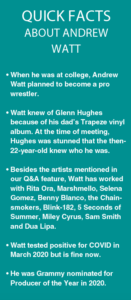
MC: What studio do you prefer to work out of?
Watt: I work out of my house. I have studios all over the world that I’ve made records in, but my homebase is my personal studio. I have everything just the way I want it. All my keyboards, all my guitars, all my drumsets.
MC: From your first production credit, how much evolution of the tech, the gear, have you seen?
Watt: I think this discussion can lead to an even cooler place. Since I’ve been producing, computers have been around. Pro Tools and computers have been how I have always made my production. In that aspect, it hasn’t changed.
I’m always getting new plug-ins, new pieces of analog gear that I’m mixing in with my stuff. Better microphones, better things like that, and to enrich the recordings even more. But something I will say, which is funny to me and I always talk about, is that if you ask a producer like Eddie Kramer or Jimmy Douglass, or a step younger than that, like Bob Rock, if they care to still record on tape, they’ll laugh you out of the room because everyone now––people in younger bands are like, “We’ve got to record to tape because we need that sound.’ I did that, I was that kid. I did that to California Breed, I made them record on tape. I wanted it to sound like Zeppelin. I wanted to sound like all the stuff that I love.
But if you ask any of those older producers if they want to record on tape they’ll laugh you out of the room because it’s technology, it’s not the sound. Now, I have a million different plug-ins that I could put on before we record and get it so close to tape, the people in the world that are listening to it would not be able to tell the difference. So modern technology of recording allows us to make the music so much quicker, when you record to tape it may take a full day to do a song. Now with Pro Tools you can go quicker and quicker.
To me, what’s most important when you’re recording rock music is keeping the human element. If you have Chad Smith and Duff McKagan and all those guys in a room together, don’t edit it down, make it sound raw and real. A little fucked up. That’s gonna give you the same sound, the same feel, that you’re getting by people playing together.
More modern pop songs that are more loop based, I do that all the time as well. That’s more about what’s being said on top that changes so much. But for rock music, tape vs Pro Tools, I care more about how it feels, and that it remains human and doesn’t feel like a computer. Pro Tools is just another tape recorder. You can leave it as it is recorded, you don’t have to edit it.
MC: How has the COVID lockdown affected work, if at all? As you work a lot from your home studio, did that ease the impact?
Watt: I mean, it’s very different. I had some projects that included a lot of people together, that had to be stopped. But at my house I have a couple of albums that I’m making now, and it’s a much smaller group of people. We do COVID testing every day so that everyone is safe and then we can sit together in a room, three or four people, knowing everyone is negative.
I’ve done a lot of sessions on Zoom now as well. Some of those have been much more fruitful than you would have thought. I’ve recorded people from their houses using Pro Tools with modern technology when I needed a musician to play on something. It’s been really crazy to work this way.
MC: Looking ahead into an uncertain 2021, when we don’t know when things will open up, what do you have planned?
Watt: I’m working on an album right now, and I’m excited about it. It’s kind of like a collaboration project with all the people that I love to work with and all the people that have come in and out of my life musically. It’s a lot of different people together on each song. It’ll be really fun for people who love music.
Photos by The Young Astronauts, Alex McDonell
Contact [email protected]

